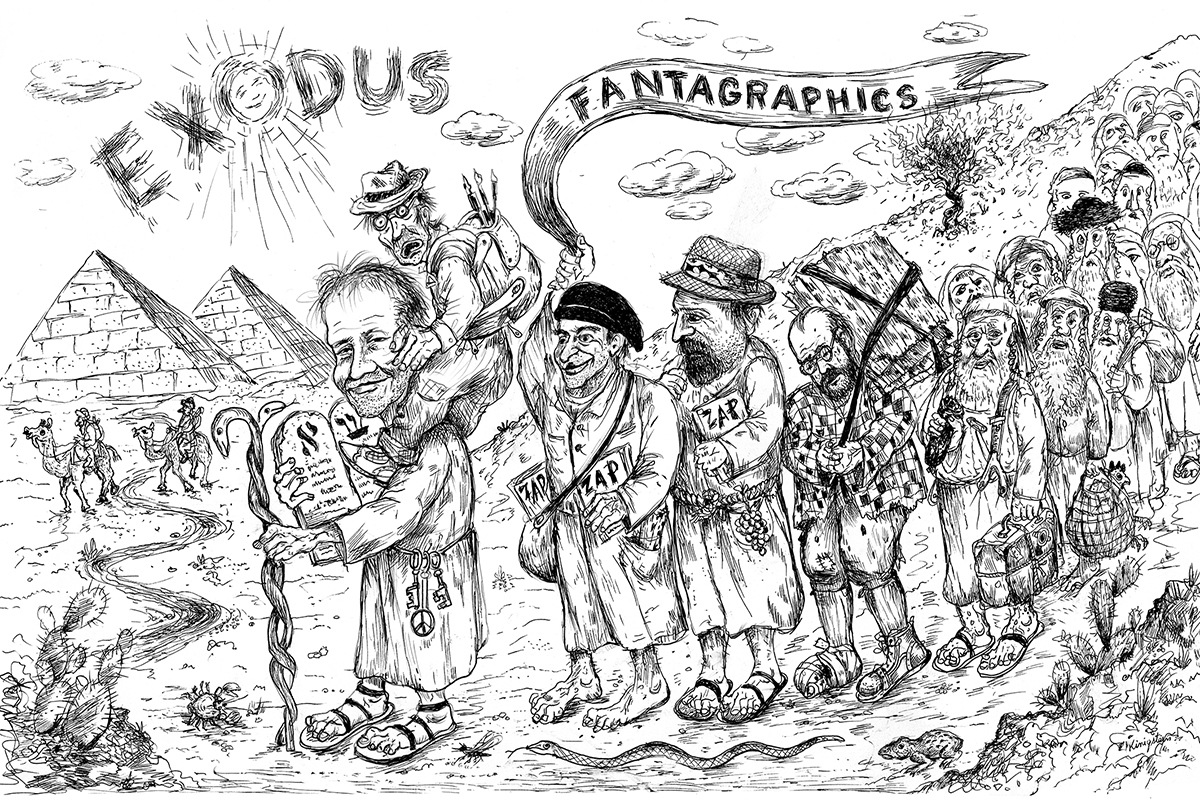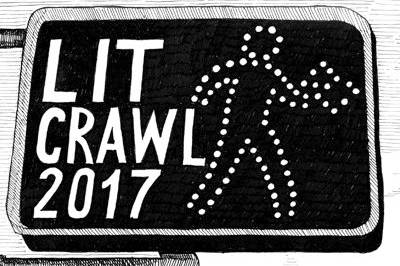When a young man named Gary Groth established a magazine to address comics as a serious literary art form, he encountered one small problem: At the time—in the mid-1970s—there were no comics worthy of his criticism. So Groth decided to publish the books that he wanted to write about in his magazine. That was the beginning of Fantagraphics Books, the self-described “publisher of the world’s greatest cartoonists.” The roster they’ve published over the past four decades—a seemingly never-ending list including Los Bros Hernandez, Chris Ware, Ellen Forney, Dan Clowes, and Lucy Knisley—renders that claim nearly indisputable. And now, from their almost impossibly shitty offices on Lake City Way, Fantagraphics is inarguably the best American comics publisher. In retrospect, it seems like a foregone conclusion, like destiny.
But of course it wasn’t destiny. It was a magical combination of hard work, ignorance, luck, and wild, apoplectic rage. Fantagraphics has seen its share of lean years, avoided its share of disasters, run directly into its share of icebergs, and shot itself in its share of feet. Save for the big five corporate behemoths in New York, most publishers are used to living on the proverbial ragged edge of disaster, but Fantagraphics has flailed around in the extinction zone for longer than most, but—sometimes for no discernible reason—never quite managed to die.
Through it all, Fantagraphics has continued to publish comics criticism in its house magazine, The Comics Journal. That conflict of interest—a publisher reviewing its own comics as well as those of its competitors—never much seemed to bother Groth. And now that Fantagraphics has evolved from scrappy bomb-thrower to archivist of comics history to the de facto industry mainstream, it’s clear that the world needs a thorough biography of Fantagraphics, to get all that world-changing history between two covers. But because no other publisher seemed to be stepping up, yet again Fantagraphics decided to solve the problem itself by publishing its own damn history.
We Told You So: Comics As Art is an oral history collected and compiled by stalwart comics journalist Tom Spurgeon with Michael Dean, and it’s an incredible object. Profusely illustrated with photographs, comics panels, all-new comics, interoffice memos, and other artifacts, it’s just a hair under 700 pages. It features interviews with dozens of Fantagraphics friends, foes, victims, and champions, all masterfully edited into a more-or-less straightforward timeline.
General audiences might find We Told You So too insidery. Another publisher would likely have trimmed the book by nearly half, but that’s simply not the Fantagraphics way; Groth, after all, is renowned for his ridiculously long, assiduously thorough interviews. But for diehard comics fans and young people who seek to sacrifice their lives on the altar of the publishing industry, this is a sumptuous buffet of a book, crammed full of gossip, anecdotes, and legend.
Spurgeon’s interviews don’t shy away from the touchy aspects of Fantagraphics history: An extended passage is devoted to the publisher’s lengthy legal battle with golden-age comics writer Michael Fleisher, for instance. And some of the punky spirit of the ’80s and ’90s could come across as prickish to modern audiences: A memo from Groth to the printer of The Comics Journal reads, “Please be extra-careful with the mechanicals. We put an awful lot of work into this issue and we don’t want it fucked up by a bunch of hicks.” I heard about this memo in the ’90s, and thought it was edgy and hilarious. Now that the cost of insulting a stranger has been devalued to a few smudgy fingerprints on a touch-screen, it’s not so impressive.
While Spurgeon shows Fantagraphics’ mean side, We Told You So could have given more voice to the publisher’s detractors. The book displays plenty of not-so-glowing moments—one Fantagraphics cartoonist still stings from a negative Comics Journal review; everyone has unkind words for Fantagraphics’ unruly shitpile of an office—but a few outright contrarian voices would have added a little much-needed edge, particularly as the narrative builds to a climactic love-fest for the publisher.
Of course, that love is entirely deserved. We Told You So makes it clear that Fantagraphics doesn’t pay very well, but as Groth and his partner, the late Kim Thompson, grew as publishers, they learned that respecting and defending their authors would earn them intense loyalty in return. Consider Spurgeon’s interview with comics genius Jim Woodring about his first Fantagraphics title, Jim: “For a long time, Jim enjoyed the distinction of being the lowest-selling magazine in the Fantagraphics roster. I thought it was absolutely wonderful, because any other publisher would have said, you know, this thing isn’t selling, we’re going to drop you. But they said, we think it’s good, so keep going—we don’t care if we’re losing money. And I thought that was fantastic.”
For a man who publicly communicates largely through wordless comics, Woodring has a knack for choosing the right word: “Fantastic” might be a word more generally associated with the corporate bombast of Marvel Comics, but it perfectly applies to Fantagraphics, along with all the other adjectives popularized by superhero comics: Incredible. Amazing. Spectacular. Astonishing. And so on. Paul Constant is the co-founder of The Seattle Review of Books. Read daily books coverage like this at seattlereviewofbooks.com.








